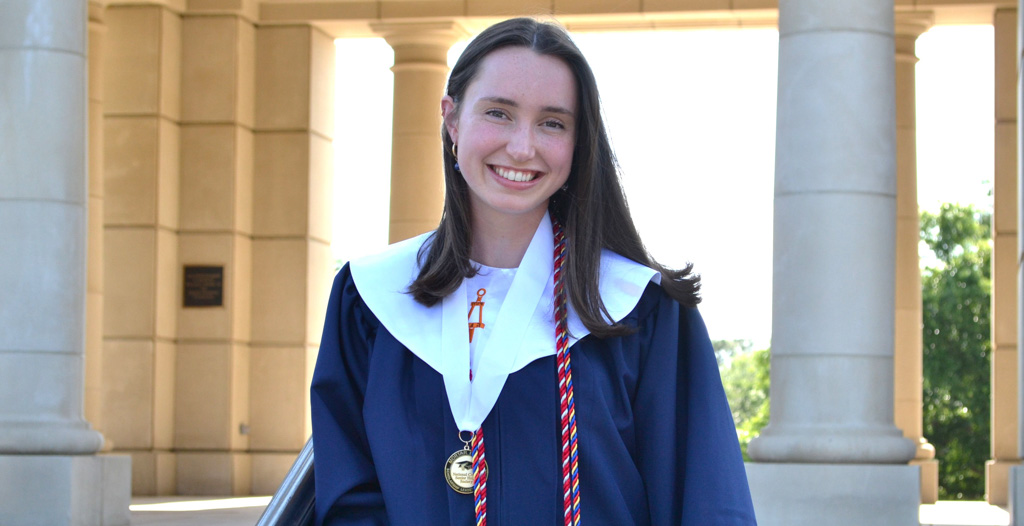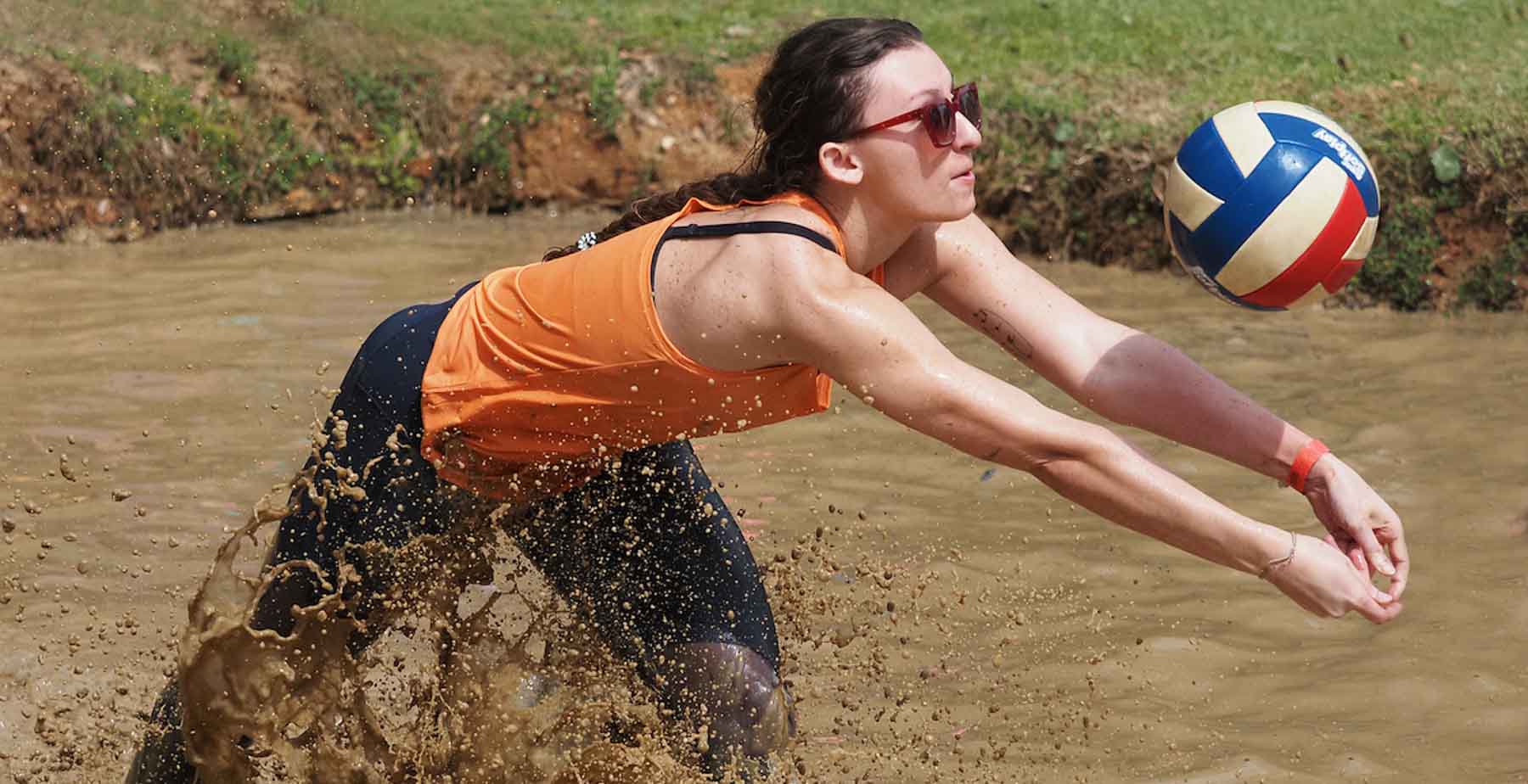South Alumna Receives Phi Kappa Phi Fellowship
Posted on August 16, 2024

Julia Nelson, a University of South Alabama mechanical engineering graduate, has been selected as a 2024 Phi Kappa Phi recipient. She is one of 54 students nationwide receiving an $8,500 fellowship for graduate study. Nelson will begin pursuing her Ph.D. in mechanical engineering at Georgia Tech this fall.
Founded in 1897, Phi Kappa Phi is the nation's oldest, largest and most selective honor society that recognizes superior scholarship and achievement in all fields of study —inducting members from every branch of learning.
“I was so shocked and excited to be awarded the Phi Kappa Phi fellowship,” Nelson said. “I feel so grateful for the professors and mentors who not only encouraged me to pursue this opportunity, but throughout my college career.”
Besides completing her degree in four years, Nelson was actively involved in biomedical engineering research. Her project focused on developing a noninvasive and low-cost device to measure blood flow to help people with conditions like peripheral artery disease get treatment before the disease becomes severe.
“We still have more testing and optimization to do before the device can be used in a clinical setting, but I'm really happy with what I was able to learn and accomplish in the lab,” she said.
Engineering students are required to complete a senior design project. Nelson and her team worked with the Department of Orthopedic Surgery at USA Health Children's and Women's hospital to develop a Halo-Gravity Traction device to treat children with severe scoliosis and kyphosis. The device uses tension force to gradually straighten the spine over a few weeks, making the subsequent spinal surgery less invasive and more successful.
“In engineering design, problems always arise that you don't expect, and you have to learn how to adapt and move forward to complete the project,” Nelson said. “We finally got to deliver the devices a few weeks ago, and I am proud of the work we did. Knowing that our project will make an impact on children in the community is a special experience.”
In addition to her academic and extracurricular schedule, Nelson played trumpet in the Jaguar Marching Band. In the fall, she was either rehearsing or performing four to five days a week. Time management became her specialty.
“What helped me the most was utilizing small pockets of time I had throughout the day,” she said. “If I had 15 minutes in between classes, I would start on a homework problem or send a few emails. Those short bursts of work added up throughout the day!”
Now headed for graduate school, Nelson describes her time at South as being filled with growth.
“I feel like a completely different person than I was four years ago when I moved into my freshman dorm,” she said. “People were always helpful and supportive at South, and it helped me develop confidence to pursue my goals.”





